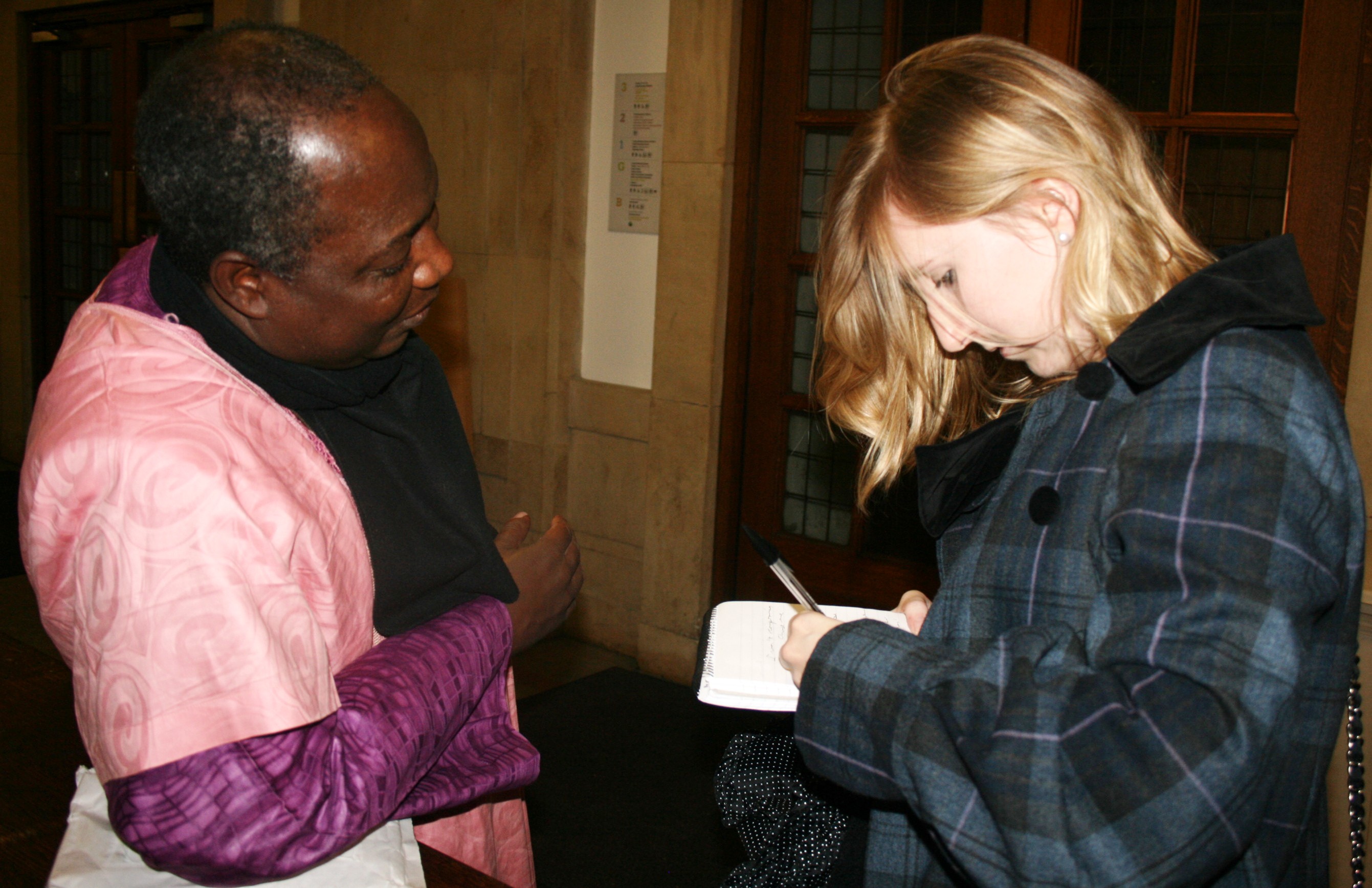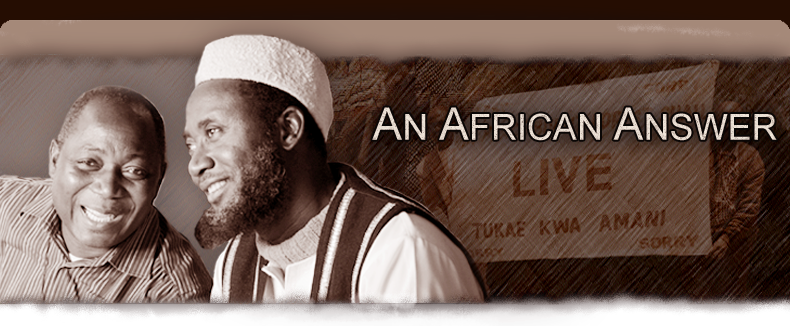 |
Reconciling Africa
Francesca Holloway
The African model for finding peace amid the continent’s warring communities
There is a remarkable scene in An African Answer in which an imam prays for the peaceful reconciliation of two, predominantly Christian, warring Kenyan tribes.
The Imam in question is Muhammad Ashafa who, together with his friend and colleague Pastor James Wuye, has developed an internal African model for peace and reconciliation, which is showcased in the film.
In the early 1990’s the men were rival leaders of militant groups involved in conflict between Muslims and Christians in their native Nigeria. Wuye lost his hand and two of Ashafa’s relations and his spiritual leader were killed in the violence. Each man vowed to murder the other to avenge their dead.
They reconciled in 1995, after the intervention of their religious leaders, and now run the Christian Muslim Interfaith Mediation Centre in Kaduna, Northern Nigeria. Their story was told in the 2006 documentary The Imam and the Pastor.
In this second documentary An African Answer the two men show how their grassroots peacemaking methods can be used successfully to solve internal conflict throughout Africa.
The two men are called to Kenya to help in the aftermath of the waves of violence that swept the country following the controversial 2007 presidential election. Claims that the result had been rigged led to widespread violence as tribal rivalry spiralled out of control. The film focuses on their work in a community which has recently seen large amounts of conflict between the warring Kikuyu and Kalenjin tribes in the Kenya Rift Valley.
The two groups begin the slow process of reconciliation, through the help of the Imam and the pastor, who draw on their own experiences, a peace committee is formed but although the violence ceases there is still tension between the groups. In Pastor Wuye’s words: “We have broken physical fear, now we have to break psychological fear.”
Further reconciliatory attempts are made at the local market, which is divided along ethnic lines. Both the Pastor and Imam make appeals to the people for the desegregation of the market. Surprisingly both men appeal to the predominantly Christian community by referring to that faith, for the Pastor this is hardly surprising, but the Imam’s words are especially significant. He asks that there be one market for both peoples, appealing to them all “as true Christians, who love Jesus Christ.”
Although the film only documents the two men’s peacemaking methods in one community its title An African Answer indicates the true scope of their movement. Their solution is not a governmental one but one from the grassroots and it is successful. By the end of the documentary a divided community has been united.
What is extraordinary about this film is how it manages to be touching without being sentimental or mawkish. It is a raw and honest account about the resolution of human conflict and emotions.
I was fortunate enough to meet both men after viewing the film and what struck me about both of them, in the film and in person, was how uncompromising each is in their religious beliefs. I asked Pastor Wuye if the two men ever prayed together and he said that while they discussed issues they would both pray about they wouldn’t actually pray together, the reason being that their differing religious beliefs would make it inappropriate to do so.
Imam Ashafa made an appeal to the African diaspora, asking them to come back to Africa. He especially emphasised the need for the return of professionals including doctors and engineers who could help develop the African Continent’s infrastructure. “They need to bring back what they learn to Africa and plant the seed,” he said.
In both the film and in person the two men manage to demonstrate, what sometimes seems like an impossible feat in these times of conflict: that two people can hold strong differing religious beliefs and yet still love and respect one another. In that respect Pastor Wuye and Imam Ashafa should be inspiration to all warring groups. The film also offers an internal solution to the conflict that often occurs in Africa. While called An African Answer I can’t help feeling that it should be ‘The African Answer’ and perhaps with time and the unceasing work of these two men, it will be.

